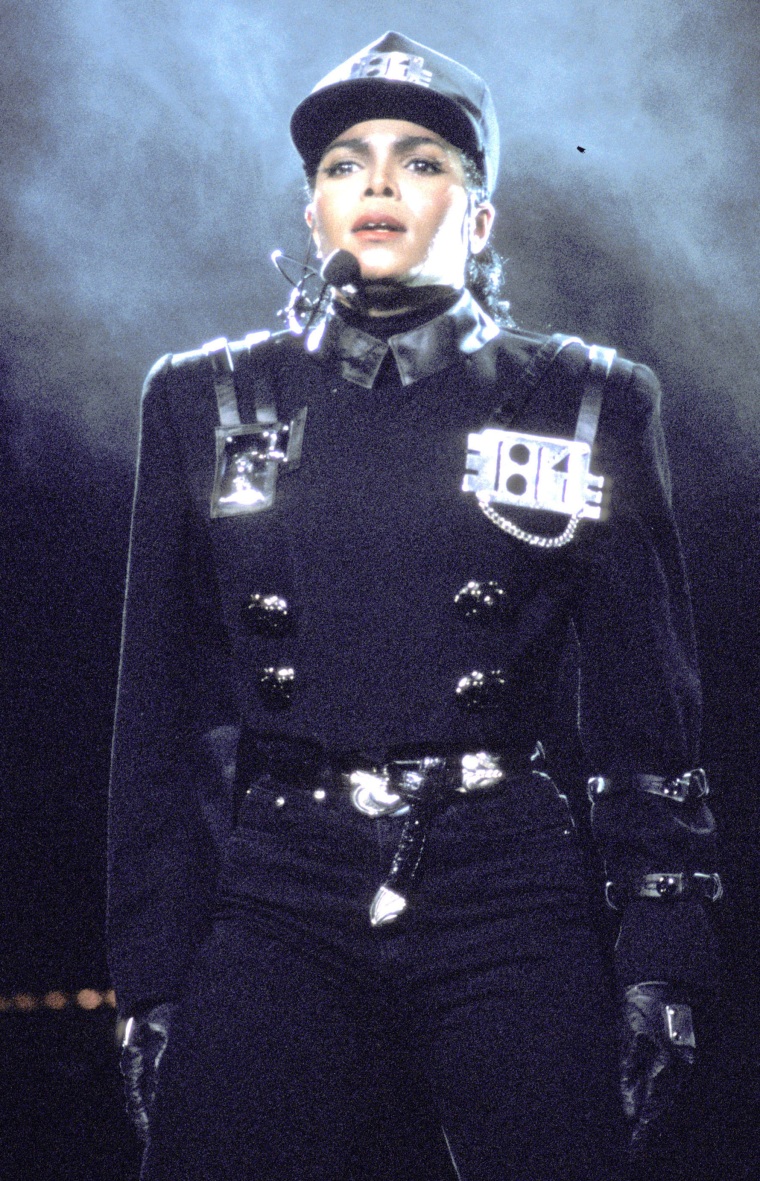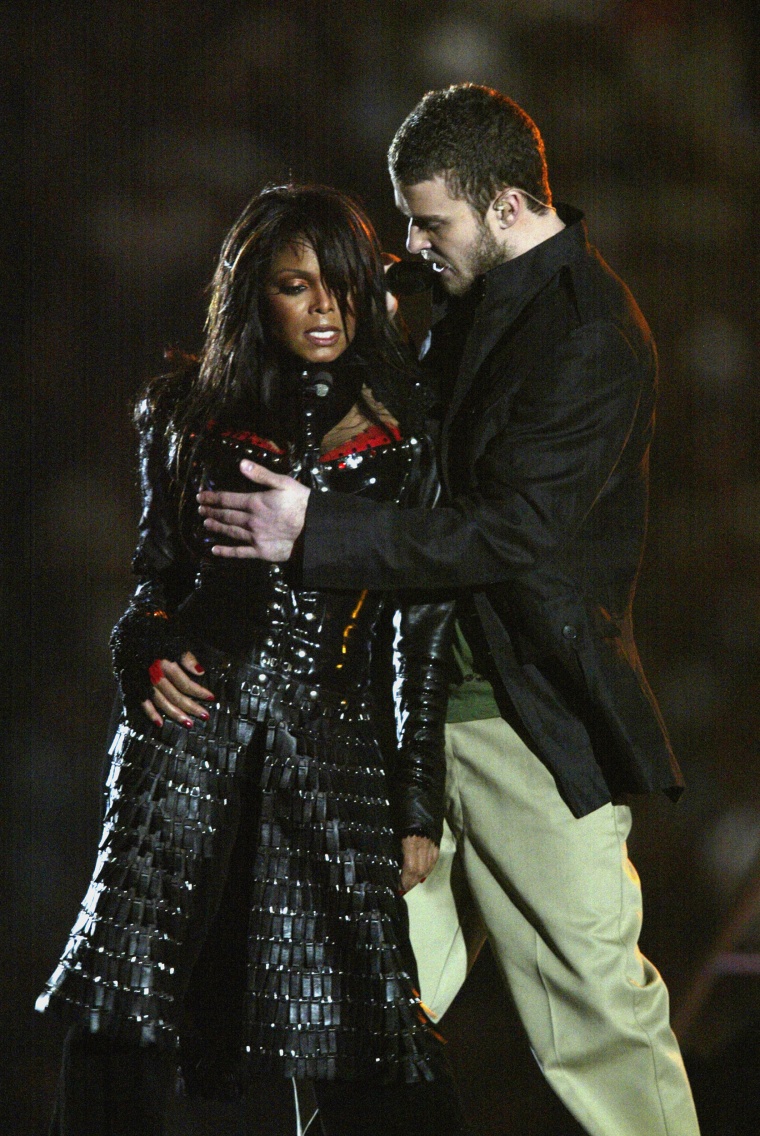There’s something about Janet Jackson finally being inducted into the Rock and Roll Hall of Fame more than a decade after eligibility that manages to both be exciting and enraging.
Earlier this year — when the pop icon was nominated for a third time — Questlove said her long-time exclusion was “highly criminal.” The Roots band member cited her breakout album, "Control," which he said spawned New Jack Swing. “Not to take away from her peers in the RRHOF that made marks in the 80s. But half of them can NOT claim they changed music,” he wrote on Instagram.

You could say the same about its hugely influential and highly successful follow up, "Rhythm Nation 1814." Among its bevy of hit singles include “Black Cat,” which netted Jackson a Grammy nomination for Best Female Rock Vocal Performance.
(And, for those foolish enough to argue against her inclusion in the Rock and Roll Hall of Fame on the basis of genre, Janet Jackson has Grammy Award nominations spanning no less than five different genres: Pop, Rock, Dance, Rap and R&B.)
After that came the innovative "janet.," which celebrated its 25th anniversary this year, and "The Velvet Rope."
Very few artists can claim to have four albums arguably considered classics, and anyone who can remember the days in which Janet Jackson at the peak of her career, it should be understandable why even a fan and fellow artist like Questlove might still feel a way about a legend of her stature needing three attempts to receive an honor that is so long overdue.
Though I understand the sentiment, I want everyone to stop categorizing Janet Jackson as “underrated.” An artist who can boast of — twice — being the recipient of the biggest recording contract in history at the time during an era in which Michael Jackson and Madonna were her contemporaries, no less, was given her due, and suggesting that she's underrated takes away from that accomplishment.

This issue today is not whether her influence on music and pop culture was recognized at the time of her most prolific period, but why her star declined so precipitously following the “Nipplegate” controversy at her 2004 Super Bowl performance with the essentially unaffected Justin Timberlake. And the answer, as we know in 2018, is that, no matter how impactful you might be as a woman and a person of color, if a powerful white man finds you distasteful, he will do his damndest to diminish you and your legacy.
The Huffington Post reported in September that disgraced former CEO and chairman of CBS Les Moonves developed a “fixation” on the singer after the Superbowl, believing both that Jackson’s “wardrobe malfunction” was an intentional move by her and Timberlake and that Jackson did not sufficiently abase herself in her personal apology to him.
So, he allegedly barred her from performing at the 2004 Grammys; he ordered VH1 and MTV to stop playing her videos; he forbade Viacom-owned radio stations from playing her music. His vendetta was so unwavering that, seven years later, when Jackson signed a book deal with Simon & Schuster — owned by Viacom — to publish "True You: A Journey to Finding and Loving Yourself," he refused to let go of his beef, reportedly saying “heads will roll” over the release of the book.
There can be no overstating the level of damage Moonves did to Jackson’s career after 2004, nor the way the music industry treated her as a result of his vindictiveness. Janet Jackson has been enjoying a resurgence this year by way of various award show honors, a return to late night television, a successful tour, anniversaries of her landmark projects, and now finally, a Rock and Roll Hall of Fame induction — since Moonves' influence has waned in the wake of his exposure as an alleged serial sexual harasser. However, Jackson became eligible for the Rock and Roll Hall of Fame in 2007, but wasn't even nominated until 2016 and (again) her induction required three attempts despite being one of the most influential artists ever. (By contrast, Madonna was inducted in 2008.)
Snubs happen, but this always felt too intentional for comfort.
So yes, I am glad Janet Jackson is getting her due, but I remain pissed all the same that the artist who played Justice in 1993's "Poetic Justice" couldn’t get any of it until 2018. Pissed because a credible accused predator was able to wield so much power over her and our culture despite what we all know is his inability to do the butterfly, rock dookie braids or deliver hit after hit after hit. Pissed because one has to wonder if any female music icon could be similarly disposed of in fits of white male pique, especially if they are Black.
And just like we now know the answer to why it took so long to recognize Janet Jackson's role in our culture, I suspect we all know that, even in 2018, the answer to the larger question is… probably.


